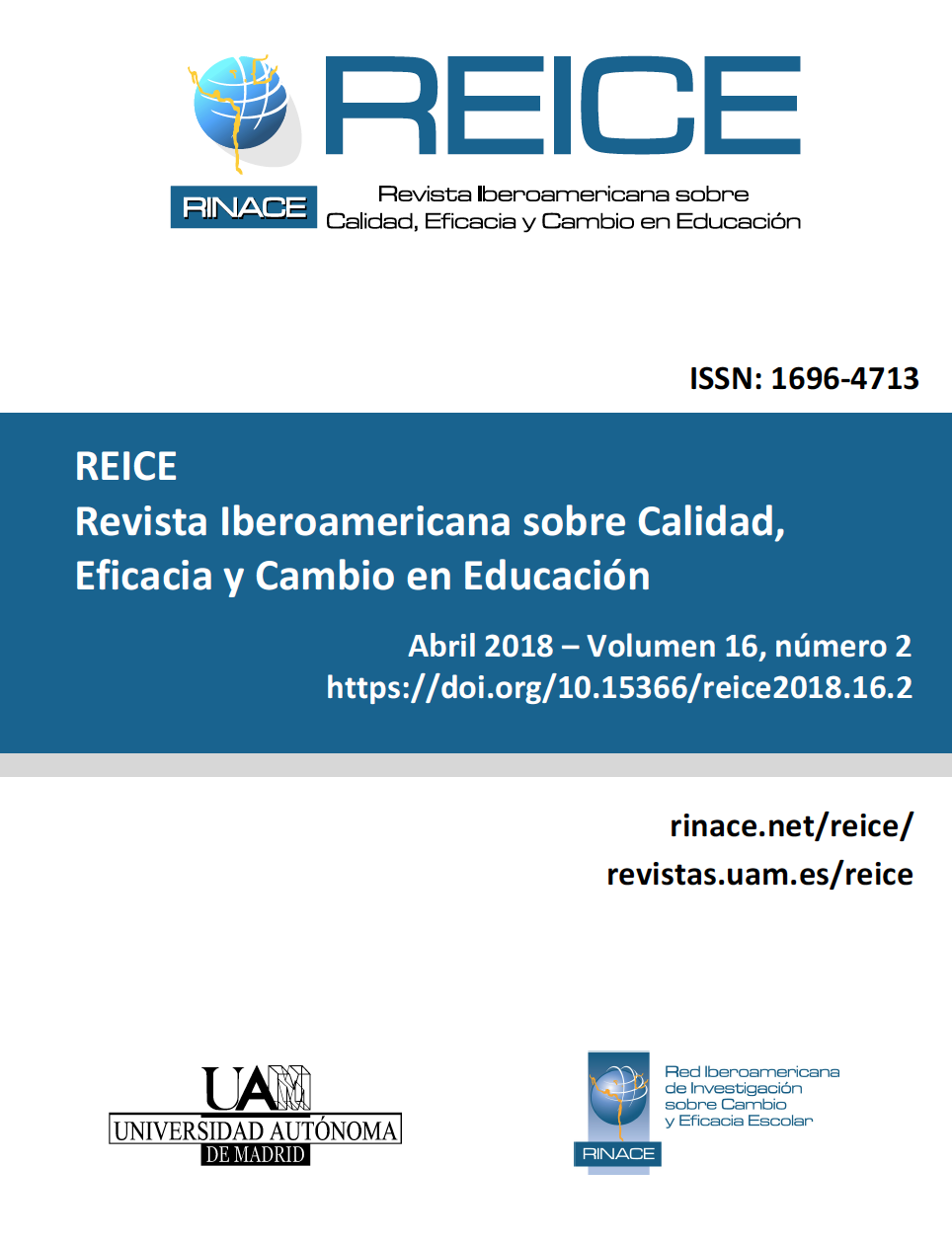Keywords:
Teachers, Higher education, Teaching, Training, Teacher effectiveness.Abstract
In order to exemplify best teaching practices, in this report we present the results of three studies in which we performed in-depth interviews of 40 outstanding psychology, engineering and medicine professors. They were selected as good professors by their students and colleagues. The objectives were to identify these professors’ qualities and ways of teaching and to set out suggestions for teacher training. We did a historical review of the way in which teaching effectiveness has been studied and we cite several studies on good teaching practices carried out in different countries. The results show that the professors interviewed enjoy teaching, seek to develop good interpersonal relationships with their students, master the pedagogical aspects and specific contents of their subjects, teach with clarity, display peculiar manners of pedagogical thinking, are committed, responsible, and carry out actions to facilitate their students’ learning by applying different strategies, creating an atmosphere conducive to learning. The professors’ teaching goals are achieving student learning and educating students integrally. Based on the results encountered, we suggest modifying the way in which teacher training programs are currently conducted and we also point out some of their implications on teacher evaluation and on the recruitment of new professors. We recognize the limitation of the lack of categories to research this topic in a unified manner, hoping that our results will provide alternatives to improve university teaching.
Downloads
References
Bain, K. (2004). What the best college teachers do. Boston, MA: Harvard University Press.
Backer, P. y Remmers, H. (1952). The measurement of teacher characteristics and the prediction of teaching efficiency in collage. Review of Educational Research, 22(3), 242-227.
Barr, A. (1940). Recruitment for teacher training and prediction of teacher success. Review of Educational Research, 10(3), 185-190. https://doi.org/10.2307/1167866
Blanco, A. (2009). Aprender a enseñar. Barcelona: Paidós.
Butsch. R. (1931). Teacher rating. Review of Educacional Research, 1(2) 99-107. https://doi.org/10.2307/1168127
Canales, A., Luna, E., Díaz Barriga, F., Monroy, M., Díaz, M. y García, J. M. (2004). Aproximaciones metodológicas al análisis y la evaluación de la docencia. En M. Rueda y F. Díaz Barriga (Coords.), La evaluación de la docencia en la universidad. Perspectivas desde la investigación y la intervención profesional (pp. 87-201). Ciudad de México: CESU-UNAM.
Carlos Guzmán, J. (2006). El pensamiento didáctico de los profesores considerados como buenos por los alumnos de la Facultad de Psicología, UNAM. Tesis de maestría. Universidad Nacional Autónoma de México.
Carlos Guzmán, J. (2008). ¿Qué hacen los buenos docentes que enseñan psicología? Una integración de investigaciones sobre la enseñanza efectiva en psicología. Recuperado desde https://jesuscarlosguzman.academia.edu/jesuscarlosguzman
Carlos Guzmán, J. (2014). Las buenas prácticas de enseñanza de los profesores de la Facultad de Ingeniería de la UNAM. Tesis doctoral. Universidad Nacional Autónoma de México.
Carlos Guzmán, J. (2016) ¿Qué y cómo evaluar el desempeño docente? Una propuesta basada en los factores que favorecen el aprendizaje. Propósitos y Representaciones, 4(2), 285-321.
Carlos, J., Castañeda, I. y Cardoso, P. (2015, noviembre). Valorando los efectos de la enseñanza: el caso del aprendizaje de asignaturas de la tradición cognoscitivista de un currículum de psicología. Comunicación presentada en el XIII Congreso Nacional de Investigación Educativa. Chihuahua.
Cid, A., Pérez, A. y Zabalza, M. A. (2009). Las prácticas de enseñanza declaradas de los mejores profesores de la Universidad de Vigo. RELIEVE, 15(2), 1-29.
Dewey, J. (2006). Democracia y educación. Madrid: Morata.
Darling-Hammond, L. (2000). Teacher quality and student achievement. A review of state policy evidence. Education Policy Analysis Archives, 8(1), 15-29. https://doi.org/10.14507/epaa.v8n1.2000
Goodyear, P. y Hativa, N. (2002). Introduction. En P. Goodyear y N. Hativa (Eds.), Teacher thinking, beliefs and knowledge in higher education (pp. 25-37). Nueva York, NY: Kluwer Academic Publishers. https://doi.org/10.1007/978-94-010-0593-7_1
Hativa, N. (2000). Teaching for effective learning in higher education. Londres: Kluwer Academic Publishers. https://doi.org/10.1007/978-94-010-0902-7
Hunt, D. y Joyce, B. (1967). Teacher trainee personality and initial teaching style. American Educational Research Journal, 4, 253-259. https://doi.org/10.3102/00028312004003253
Ibarra, L. (1999). La educación universitaria y el buen maestro. Ciudad de México: Gernika.
Kane, R., Sandretto, S. y Heath, C. (2002) Telling half of the story: A critical review of research on the teaching beliefs and practices of university academics. Review of Educational Research, 72(2), 177-228. https://doi.org/10.3102/00346543072002177
Kvale, S. (1996). Interviews. An introduction to qualitative research interviewing. Thousand Oaks, CA: Sage Publications.
Loredo, J., Romero, R. e Inda, P. (2008, septiembre). Y los buenos profesores ¿Qué piensan ellos de la evaluación docente? Comunicación presentada en el Congreso Internacional de Evaluación Educativa. Tlaxcala.
Moreno, T. (2011) Didáctica de la educación superior: Nuevos desafíos en el siglo XXI. Perspectiva Educacional, 50(2), 26-54.
Patiño, H. (2012) Educación humanística en la universidad. Un análisis a partir de las prácticas docentes efectivas. Perfíles Educativos, XXXIV(36), 23-41.
Ramsden, P. (2007). Learning to teach in higher education. Londres: Routledge.
Rotter, J. (1966). Generalized expectancies for internal versus external control of reinforcement. Psychological Monographs, 80, 1-28. https://doi.org/10.1037/h0092976
Rubin, J. y Rubin, S. (1995). Qualitative interviewing. Thousand Oaks, CA: Sage.
Scardamalia, M. y Bereiter, C. (1989). Conceptions of teaching and approaches to core problems. En M. Reynolds (Ed.), Knowledge base for beginning teachers (pp. 42-65). Oxford: Pergamon.
Tapia, C., Valdés, A., Montes, M. y Valdés, L. (2017). Lo que hacen los mejores profesores en una universidad pública mexicana. Praxis Investigativa ReDIE, 9(17), 167-178.
Tschannen, M., Woolfook, A. y Hoy W. (1998). Teacher efficacy. Its meaning and measure. Review of Educational Research, 68(2), 45-67. https://doi.org/10.3102/00346543068002202
Van den Berg, I. (2002). Teacher´s meanings regarding educational practice. Review of Educational Research, 72(4), 577-625. https://doi.org/10.3102/00346543072004577
